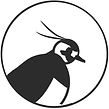Good interviews
- Sally Ballard
- Jun 24, 2019
- 2 min read
Updated: Jul 30, 2019
Interviews are part and parcel of journalism. They provide more than just more voices to a story. They add facts, expertise, balance, depth and credibility. A good interview can breathe vitality and vigour into dry, sterile information.
Good questions make for good interviews.
An interested interviewer draws out interesting angles and quotes that otherwise would lie dormant with those being interviewed.

But to conduct a good interview, you, the journalist, must plan and focus and try to make your interview interesting for your interviewee too.
As with most interviews – the skill is to get the person you are interviewing to drop their guard and talk
Always ask the obvious as well as stimulating questions.
And don’t jump to conclusions.
The detail is as important as the earth-shattering facts you unearth.
The obvious means, for example, that you ask for the spelling of names, that you make sure your ‘researched’ facts are correct – and the fact a couple don’t live together anymore doesn’t mean they are divorced. They may be separated – or not married in the first place.
So check your facts before you leave your interview. These potentially ‘small’ inaccuracies will erode your story’s credibility.
As with most interviews – the skill is to get the person you are interviewing to drop their guard and talk.
This is often when the more interesting facts, anecdotes and description usually come. Keep chatting even as you are packing up to leave. The person you are interviewing often relaxes at this stage. The formal bit is over. It’s at this point that the best quotes often come. Or even new facts. Make sure you follow them up.
In order to make the most of the time you have for your interview, research as much as you can about your subject. Otherwise you will seem ignorant and uninformed to those you are interviewing.
Background knowledge will be appreciated by your interviewee, and having checked your researched facts are correct, you will have more time to ask other questions.
Don’t talk too much. Listen. Prompt and listen.
Most people love to talk, even shy people, especially if they have an attentive audience. Be that audience.
Before the interview, list your ‘must know’ questions – this keeps you on track. Know why you are interviewing the person. What do you want to find out? Refer to your list of questions at the end of the interview to check you have covered all the main points. During the interview follow up new information but go back to your core questions.
By asking yourself these questions, you will be in a better position to face your interviewee.
Every interview is different. And every interviewee comes to an interview with a different set of expectations and a different agenda.

Comments